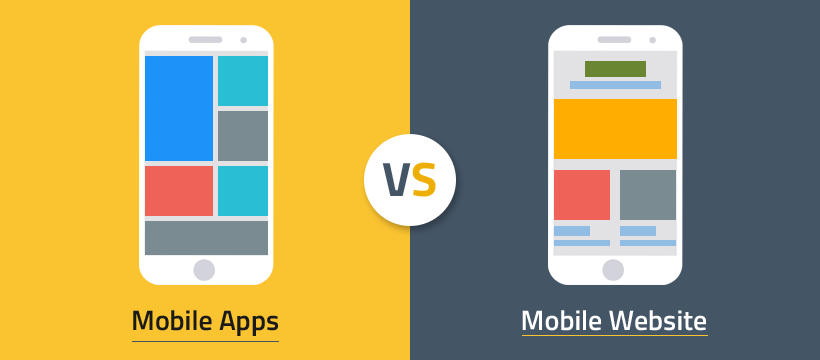The world has literally squeezed down in our pockets now. Yes, you are right I am talking about mobiles. With the advancement in technology and the virtual world becoming more prominent than the real world, the importance of mobile devices has increased three folds. And the fact that mobiles have become more popular than laptops or desktops cannot be ignored or taken lightly anymore.
Evidently, the companies are also aware of the roles of mobiles amongst their customers and therefore, the mobile strategy has become a vital part of the marketing plan. If we talk about the numbers, you can clearly see mobile internet users are taking over desktop internet users.
- 2% of worldwide internet traffic came from mobile phones in 2019.
- In the third quarter of 2018, organic search engine results through mobiles were 32% higher (56%) in comparison to 27% in 2013.
- The average time spent by a person on mobile devices consuming media was 203 minutes per day in 2019 recording an increase of 130 minutes in comparison to 88 minutes per day in 2013.
- By 2019, average daily media browsing on mobiles surpassed desktop browsing by 37%.
- 80% of the Indian population access internet through mobiles.
Mobile users spend approximately 90% of the time using mobile apps and apps get 4 times more engagement in comparison to mobile web browsers.
I guess these numbers cleared a few cobwebs in your head regarding the importance of mobile apps and mobile websites, now more than ever.
Creating responsive websites is not a new thing. However, this is not just about responsive websites. This is about creating mobile apps and mobile websites specifically. Let us understand the difference between the two.
Difference Between Mobile App Vs Mobile Website
- Mobile Apps – unlike responsive websites, mobile applications are specially designed for mobile devices. These apps are downloaded and installed from Android and Apple stores. Some mobile apps also provide the option of using it without the internet once downloaded and installed.
- Mobile Websites: it is just like desktop websites designed to be responsive on mobile devices as well. Mobile websites are exactly similar to desktop websites displaying text, images, videos, content, etc.
Now let us have a look at the pros of both mobile apps and mobile websites.
Pros Of Mobile Apps And Mobile Websites
Quite a few people argue that mobile applications are not necessary and only a responsive website will be good enough for mobile devices. While others debate that mobile applications have their own benefits that a mobile website does not provide. Before deciding on which one is the best, consider the following factors of both mobile apps and websites.
Mobile App Pros:
- Provides branding opportunities.
- A separate entity from a desktop website, hence wider reach and branding.
- Offers a different experience than that of a website.
- Can offer a personalised experience to users in regards to communication, based on their location, user behaviours and interests.
- Mobile apps are designed specifically for mobile experience rather than responsive websites originally designed for desktops.
- Users can set their preferences in a mobile app.
- Businesses can offer personally tailored offers and custom recommendations based on mobile app analytics.
- Mobile apps can leverage device capabilities. For example, native apps have the programming to interface with mobile features like GPS, camera, location, etc. This enhances the user experience.
- Mobile apps offer features like push notification, device alerts, instant and automatic app updates and tap to call or email options.
- Mobile apps are more interactive and promote more user engagement in comparison to mobile websites.
- One of the biggest benefits of mobile apps is offline access.
Mobile Website Pros:
- Mobile websites also provide a broader audience reach as it is accessible on desktops as well as mobiles.
- It has greater reach capabilities on search engines in comparison to mobile apps.
- It is more cost-effective in comparison to designing a personalised mobile app.
Responsive websites or mobile compatible websites are ranked higher in SEO results.
How Mobile App And Mobile Website Can Work Together?
Deciding between a mobile app and a website can be a difficult choice to make. There is a possibility where you don’t have to choose between the two. Mobile applications and mobile websites can very well go along together. This combination can give you:
- The best opportunity to expand your reach to new customers.
- Deliver a unique experience and personalized content.
- Promote offers and information to your most loyal customers.
A common use of both mobile apps and websites can be through:
- Adding an ad on your website, which prompts visitors to download your mobile app.
- This gives you a great channel to reach people, communicate with them immediately via push notifications, and take advantage of the capabilities of a mobile app.
You shouldn’t have to make a choice between an app and a website. Both of them have their own benefits and both can (and should!) work together. Feel free to share your thoughts and views in the comment box below. And let me know which according to you is best a mobile app or a mobile website or both.

